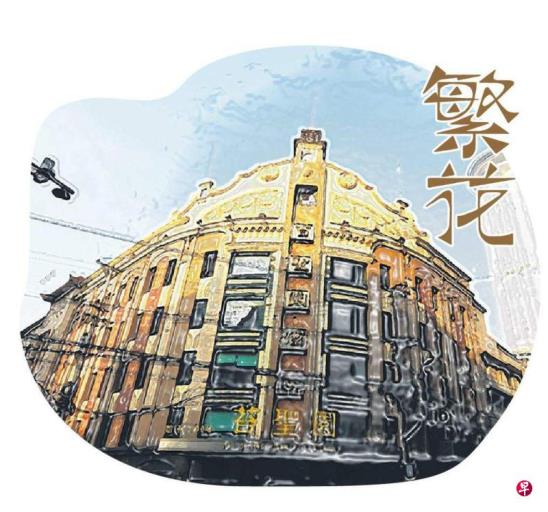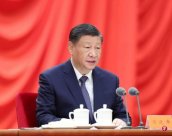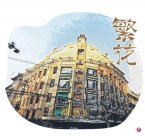
The TV series adapted from the novel of the same name ended this week. This popular drama has caused multi -level discussion. In addition to shooting methods, star acting skills, and Shanghai language dissemination, there are also talked about from a historical perspective.
The 1990s of the TV series was a turning point in Chinese history, and Shanghai played an important role.After that year, China's reform was deadlocked, and the country's surnames were arguing.In 1991, the Shanghai Jiefang Daily published an article with the pseudonym "Huang Fuping" to defend the reform and opening up. In 1992, Deng Xiaoping's southern tour, the important station was Shanghai.Chinese history has opened a new chapter, Shanghai leads the first style, and the stock exchanges and foreign trade bureaus shown in the play reflect the appearance of the times.
For the overall evaluation of the 1990s, many Chinese agreed that it was the golden period of economic growth and improvement of life. Howeveryears.Other critics believe that the political reform is stagnant, only the economy, and the single legs of materialism, and laid the root of the calamity for later reform to the deep water area.
Some netizens mentioned that the two hot dramas and flowers that were broadcast last year were about the 1990s.When the state -owned planned economy system in Northeast China is ending, the southern cities dominated by market economy are developing rapidly.
Thirty years have passed, and today China's economy is facing difficulties. The doubts of whether reform and opening up can continue from time to time., Let the audience have a subtle emotion of comparison in the past.
For the decline of the northeast, the end of the long season shout "Look forward, don't look back."The ending of Fanhua TV series is also the six words that mean: "People don't ring, know it."
To further grasp the historical context, you must also compare the original work of the writer Jin Yucheng.In the Book of Fanhua, there are three protagonists: Abao, Shanghai Sheng, and Xiao Mao, which represent the descendants of the capitalist, the cadres of the south, and the working class.
Abao was copied young, and after changing the speculation, he had no choice but to find out. He used to be innocent love.In the 1990s, he got off and died of poverty.
Half of the novels write before and after the Cultural Revolution.Some commented that the biggest gap between the drama and the original is the lack of the 1960s. This kind of criticism is a bit difficult. Under the current review mechanism of China, no director dares to touch the topic of political sensitivity.However, even in the 1990s, the tone of books and dramas was very different.
In Jin Yucheng's writing, the 1960s of "smashing the old world" were cruel and ridiculous.Ms. Wang and the rich boss had a relationship with a relationship with a fortune. Xuezhi and other rich wives went to Thailand to find joy.
The writer has a deep love for Shanghai. In his mind, Shanghai is prosperous and market well; the Shanghai people are savvy and decent.However, every time the tide of the times will be washed away, and it gradually looks like.
The most "not sound" in the book.In different historical contexts, it can dare not say delusion, make a lot of money, protest silently, and helpless."No sound" is the characteristic of Shanghai people and an attitude.
The whole story has a sense of historical tragedy.In the novel, Hua Huaxin wrote: "The goodwill of the world is not worth a smile, and life is a desolate trip." Hu Sheng said: "Revolutionary one after another, the victims were overwhelmed."A Bao said," Faced with this society, everyone can only smile, and there will be no miracles. "
The novels are like their names, from the flowers of flowers, to the endless flowers, and seeing the times and seeing all beings.The TV series focuses on the legend of urban men and women and Shanghai, and the elements of Pudong Development and Hong Kong's return that appeared in the end also has the main melody meaning.
Perhaps we should not blame Wang Wei. He uses his own style and understanding method to take a boutique under the existing conditions. Even if his Shanghai is different from Jin Yucheng's Shanghai, it is not today's Shanghai.There is no need to lose confidence in Shanghai. Every time modern China has a historical turn, this city is standing in the tide. Even in the dark environment, the people will have their own expressions, such as Urumqi Road, such as Halloween.
If a phenomenon -level TV series can trigger people's thinking about the city and Chinese history, and attract more people to read the original work, it is great.




